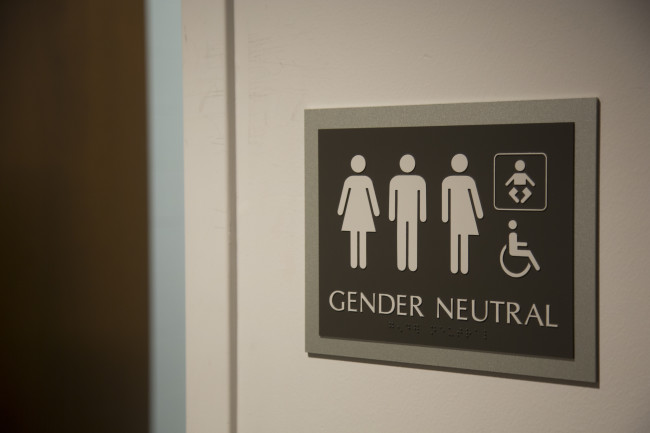
Owners of climbing facilities have a lot to worry about: risk management, member recruitment, employee retention, the list goes on. Most of these issues can be addressed with straightforward and uncontroversial strategies. However, gyms face a number of issues, from dress codes to free speech, same-sex family passes, breastfeeding, transgender locker room access and public prayer, that are much thornier issues to navigate.
These hot button issues are challenging for gyms, not only because of their controversial nature, but also because many of them are protected by state and federal laws. Therefore it’s essential for business owners to have clear policies in place before an issue arises that could expose a business to bad publicity or a legal battle.
Tom Margolis, a Madison, Wisconsin-based attorney who has expertise in the fitness industry told Club Industry that it’s important for fitness facilities to have policies in place for all aspects of their business that could have legal ramifications. “If they wait to handle things when they occur, as opposed to before they occur, the damage could already be done,” he said.
Letter of the Law
Despite being a private business, if you offer services to the public you are subject to federal law that dictates how you can treat your customers. The Federal Civil Rights Act of 1964 prohibits discrimination on the basis of race, color, religion or national origin.
First and foremost, all operational policies should be written down and reviewed by a knowledgable local attorney to ensure that they comply with federal, state and local law. Second only to that is ensuring that you have adequate staff training on these policies.
“Staff should be involved from the standpoint of being educated on issues that could have a legal impact on the health club,” Margolis said. “Discriminating against a same-sex married couple, for example, by even one uninformed staff member could lead to legal action against the gym, as well as potentially damage the gym’s reputation from word of mouth and/or negative publicity.”

Hot Topics
Breast Feeding
Over the past few years many private fitness facilities and community centers have faced public outrage and lawsuits over breast feeding. One gym in Texas faced issues after asking a woman to move to the locker room to breast feed her 13-month-old, while a fitness center in California ran afoul of the law after escorting a mother out of their club after telling her she could not breast feed her son in the locker room.
Forty-nine states, the District of Columbia and the Virgin Islands have laws that specifically allow women to breast feed in any public or private location (Idaho is the odd one out). Although the laws regarding breastfeeding vary from state to state, many explicitly state that women are allowed to breast feed a child anywhere they are otherwise authorized to be.
Transgender Bathrooms
Currently there are no federal or state laws requiring businesses to allow transgender customers to use the bathroom of the sex they identify with. However, the Occupational Safety and Health Administration has issued a Guide to Restroom Access for Transgender Workers that urges employers to give transgender employees access to bathrooms that correspond to their gender identity.
The guide is explicit that restroom access for transgender workers is both a civil rights issue and a health and safety one. “It is essential for employees to be able to work in a manner consistent with how they live the rest of their daily lives, based on their gender identity,” the OSHA guide advises.
Implementing a transgender bathroom policy may not be easy. Planet Fitness received a lot of unwelcome media earlier this year after a member complained to a front desk employee about a transgender woman in the women’s locker room. The employee cited policy that allows people to use changing rooms based on “their sincere, self-reported gender identity.” Planet Fitness’ corporate headquarters told the member the same thing when she called to complain.
The unhappy member began complaining to other members about the policy, which management found to be in violation of their membership agreement. They canceled her membership and the member sued for damages. Planet Fitness stands by the decision and says that it aligns with the company mantra of being a “Judgement Free Zone”. The lawsuit is pending.
Despite varying opinions on the topic, many agree that the best possible bathroom setup for businesses to provide is single-occupancy, unisex bathrooms and showers.
Dress Code
As private facilities climbing gyms have the right to set standards on what customers wear. While a few require everyone to wear shirts (the “no nipple rule”), most gyms in North America choose not to set a specific standard for their members.
It is more common to see specific dress codes for members of the youth climbing team. Many coaches have found that requiring adequate coverage prevents some unnecessary distraction amongst their teen members, and is an opportunity to ensure that team members, which are ambassadors of the organization, are presenting a respectful and family-friendly image.
It still may be a good idea for gyms to have a written dress code policy. Employees shouldn’t have to make a judgement call on how to respond to a sensitive topic such as: a customer walks in wearing a shirt with an offensive message written on it; a member complains about someone wearing a revealing outfit; or someone questions the safety of a member climbing in a long headscarf or hijab.
Are Climbers Special?
These issues may seem remote for some climbing gym operators. In fact when CBJ reached out to the community for examples of climbing gyms that had dealt with these situations we received no negative examples. We did hear from a gym owner in Canada who said, “We already live in a city which embraces all sorts of people from different walks of life, and the climbing community tends to attract those who really embody that spirit.”
This sentiment was found across the climbing industry. Is this because climbers are more highly evolved than the average person? A Texas gym manager responded to our query, “When you put as much trust in people who are basically strangers as quickly as we do (spotting each other and trading out belays). I think that takes out a lot of the initial barriers of acceptance. As climbers we are all a little out there anyway, and we’ve all got some weird stuff”
As climbing gyms become more main stream and attract a broader audience it’s inevitable that some feathers will get ruffled. But as the Canadian owner told us, “I think we’re pretty lucky in that we live in a very progressive community and don’t really have to deal with the tough issues like that (not yet, at least). Everyone just sort of gets along on their own.”

Climbing Business Journal is an independent news outlet dedicated to covering the indoor climbing industry. Here you will find the latest coverage of climbing industry news, gym developments, industry best practices, risk management, climbing competitions, youth coaching and routesetting. Have an article idea? CBJ loves to hear from readers like you!






